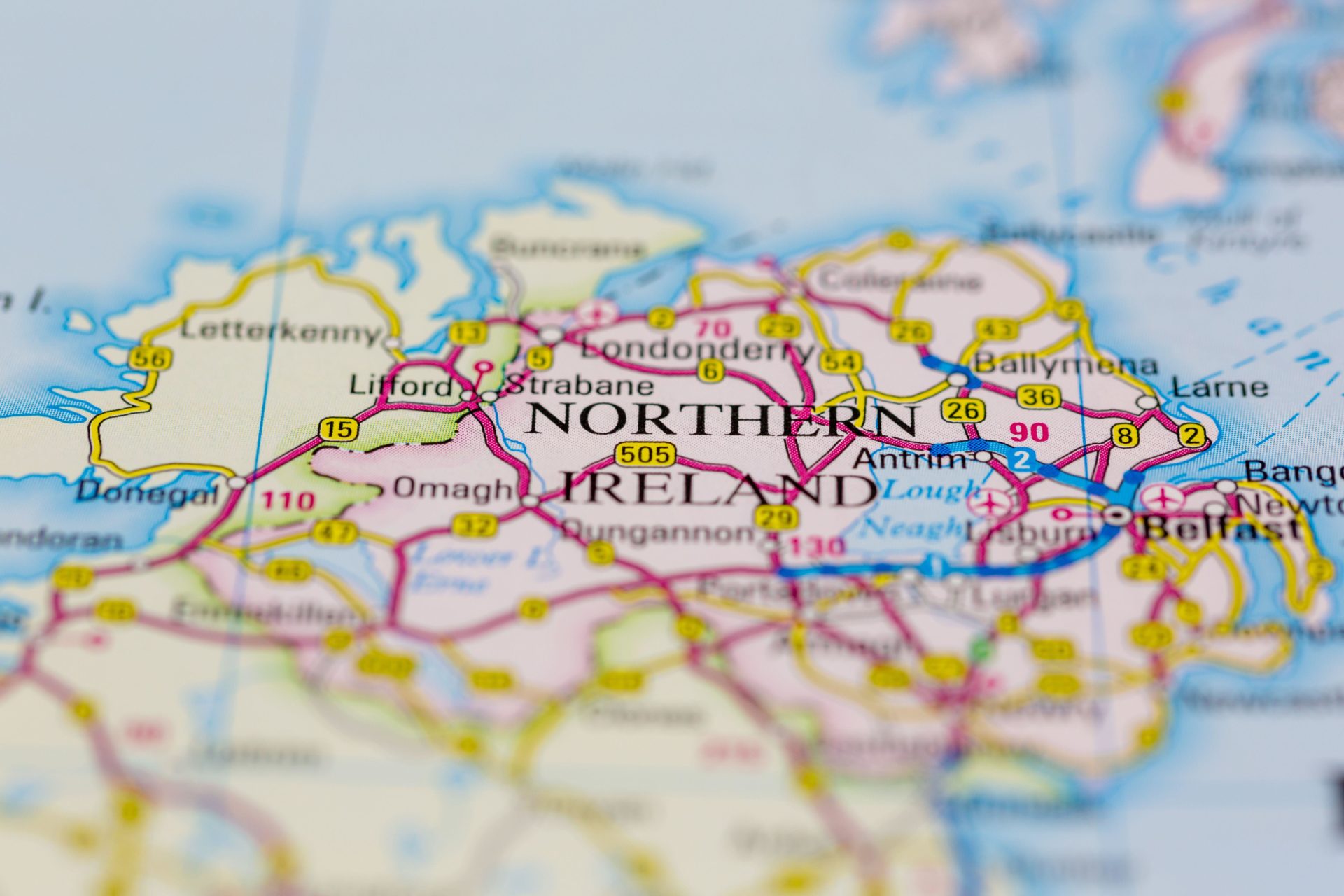A united Ireland would only be possible with a dramatic increase in taxation or a major reduction in public spending.
A new Institute of International and European Affairs (IIEA) report is examining the potential financial cost to Ireland of supporting Northern Ireland.
It says getting rid of the border could add 10% to Ireland's national debt "while producing a very limited increase in revenue".
 Northern Ireland is shown on a map, 19-3-21. Image: GH Maps / Alamy
Northern Ireland is shown on a map, 19-3-21. Image: GH Maps / Alamy"To deal with the resulting deficit, which would be likely to persist for many years after unification, there would have to be a dramatic increase in taxation and/or a major reduction in expenditure south of the border," the report says.
"While the very low productivity of Northern Ireland's economy continues to leave it among the poorest regions in the UK, it will have a very large fiscal deficit," it says.
It adds that even though the Republic of Ireland has a much higher national income, funding the needs of the people of Northern Ireland in a united Ireland "would put huge financial pressure" on people in the Republic, resulting in "an immediate major reduction in their living standards".
Narrowing the gap
The paper suggests that if Northern Ireland made major changes in its economy designed to dramatically raise productivity, the gap in living standards would narrow "over time".
"In turn, this would reduce the Northern Ireland deficit and also reduce the cost of applying similar standards in Northern Ireland to those in Ireland. This could substantially reduce the cost of unification," it says.
However, it is likely to be at least two decades before the productivity gap could be substantially narrowed "even under the most favourable circumstances with optimal policies", the paper adds.
'Major changes'
Trinity College Professor and report author John Fitzgerald said the ordinary taxpayer would foot the bill.
"Given that Irish Government expenditure is about 40% of national income, it would represent an increase of a quarter in Irish Government expenditure," he said.
"To fund it you'd need to increase taxes by the same amount, by a very large amount.
"If the people of Northern Ireland want Irish unity they need to make major changes, in particular in the education system [and] other changes, to raise productivity to narrow the gap.
"Even if they want to remain a part of the United Kingdom... it would substantially benefit them in the long run," he added.
It is believed some of the costs in a united Ireland scenario would eventually be offset by the wider benefits of integration into the wider European Union economy.









